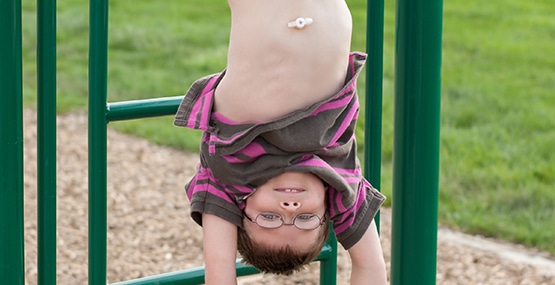
8 Surprising Reasons Your Kid Isn't Eating
What to watch for, when to worry, and exactly what to do about it.
-It's a common scene played out in a family's household: a child sitting at the dinner table, hemming and hawing—or flat-out refusing—to eat the food on his plate. Many children are picky eaters, after all.
It's easy to assume a dinnertime hunger strike is a power-play between parent and child (and yes, it often is), it also could be a sign of something more serious bubbling beneath the surface.
When should you worry? "For a child to dramatically reduce or significantly change their eating pattern for more than a week or two is not normal," says Maria Oliva-Hemker, M.D., director of pediatric gastroenterology, hepatology, and nutrition at Johns Hopkins University School of Medicine and a member of the Nutrition4Kids Medical Advisory Board. "That's when it'll begin to affect their weight, and if it continues over a span of months, their height and overall growth."

Day to day, it's not typical for kids to go more than two to four hours without wanting to eat, says Sarah Remmer, R.D., co-author of the upcoming book, Food to Grow On: The Ultimate Guide to Childhood Nutrition from Pregnancy to Packed Lunches.
So assuming your kid is otherwise in good health and not battling a viral infection or illness, if her growling tummy isn't bringing her back to the table, it may be time to consider what else could be going on.
Here are eight common reasons children refuse to eat, and what you can do to get them back to the table.
Reason #1: They've Filled Up Before Mealtime
Letting kids consume snacks and drinks right before mealtime—or even drink too much during the meal—is one of the most common reasons they push their plates away, Remmer says.
Thankfully, the solution is relatively simple: Once you hit that 60- to 90-minute window before a meal, hold off on giving them anything but water—and even that can fill them up, if they drink more than a few ounces just before or during their meal.
It's also best if you don't set beverage containers, like a carton of milk or juice, directly on the table. Having them only drink from their glass or cup during the meal helps control how much drink versus food they fill up on.
Reason #2: They're Testing Their Power
When that all-too-common dinner strike plays out, we've all heard comments like "If you eat your vegetables, you can have dessert." There's even the classic "You're not leaving the table until that plate is clean."
Both are examples of forced feeding behaviors, but they aren't actually needed, as it's likely your child is simply testing the parent-child power dynamic. When that happens, Remmer says it's best to avoid the temptation to bribe, so you can consistently make it clear you are the provider of the what, where, and when of food.
But giving them some choice in the matter—like letting them decide how much to eat—also gives them a sense of control while opening up the opportunity to begin to understand their hunger cues. A comparative analysis found even four-to-five-month-olds have an innate ability to control how much they need to eat, and more research notes that if you allow kids to tune in to those cues, disordered eating behaviors—such as binge eating and chronic dieting—are less likely to form.
Bribery, like offering dessert as a reward, can also undermine the healthy eating habits you're trying to teach. The University of Rochester Medical Center says the act can lead to a distaste for the nutritious food they're being forced to eat, while simultaneously encouraging them to ignore their hunger cues in order to reach a reward—one that's likely high in sugar, fat, or empty calories.
All this is to say, if your child is hosting a hunger strike and there aren't any other concerning symptoms present, then walk away. Avoiding power struggles now will set your kids up for healthy eating success later.
Reason #3: They're Constipated
"Constipation is an exceedingly common problem for kids in the United States," Dr. Oliva-Hemker says. In fact, Boston Children's Hospital reports almost 5 percent of pediatrician visits are related to the diagnosis, and at least 25 percent of pediatric gastroenterology specialty visits are due to problems associated with constipation.
We all have a gastrocolic reflex, and it's what happens when our GI tract squeezes and moves in preparation of receiving a meal, Dr. Oliva-Hemker explains. But if your colon is overstuffed, that squeezing can cause cramping or abdominal pain.
So your child goes to the table, starts to eat, experiences stomach pain, and maybe even feels like he has to go to the bathroom—but he tries to go and nothing comes out. He returns to the table and the same thing happens again, resulting in a cyclical and rather unpleasant eating experience.
The good news: If constipation is resolved quickly, eating usually goes back to normal, Dr. Oliva-Hemker says. If it isn't, it can lead to your child associating eating with negative consequences and eventually forming unhealthy eating behaviors.
Reason #4: The Dinner Setup Is Too Distracting
We all know what you eat is important, but where you eat is just as crucial to your child's mealtime success.
"We are in a society where there's a lot of busyness for everybody, so we've gotten away from sitting at a dinner table, all together, at a routine time," Dr. Oliva-Hemker says.
Eating on the couch in front of the TV, or at the table with a smartphone or tablet nearby, can distract children from eating. So if you're noticing it takes them an extraordinary amount of time to eat—by elementary school, most children should be able to eat an appropriately sized meal in about 30 minutes, Dr. Oliva-Hemker says—then it may be time to reevaluate your surroundings.
Ask yourself: Is breakfast a calm experience? Are we all eating together at the table? Are the cell phones put away? Is the TV off? The answers should apply to everyone in the family, as children see and mimic how other people behave—and that includes eating, Dr. Oliva-Hemker says.
Reason #5: They're Mimicking Your Behavior
Fact: It's totally possible your child is holding out for a big slice of cheese pizza on nights you're serving grilled chicken with vegetables. But it's likely she didn't get to that behavioral resistance on their own.
Many times, children learn to eat what their parents eat. If you're not putting certain fruits or vegetables on your own plate, it's hard to expect your children to start eating those things, Dr. Oliva-Hemker says.
One way to help break the picky-eating habit other than reinforcing good nutrition behavior on your end: options. Giving kids choices within a macronutrient—like, say, chicken, turkey, or fish for their main protein—helps them feel involved, and can smooth the transition to regularly making healthy choices they enjoy.
Reason #6: They Have a True Food Aversion
Along with a lack of weight gain, toddlers who are seemingly uninterested in—or who turn away from—food could have an anatomical problem, such as a food allergy, intolerance, or acid reflux, Dr. Oliva-Hemker says.
All of these things can cause your child to associate pain and discomfort with the act of eating, in turn causing food aversion or significant food refusal behaviors, she adds. When this happens, it's best to consult with your pediatrician. They may refer you to an allergist or gastroenterologist, who will be able to order additional tests.
Just keep in mind that true food aversions are more severe than a child who simply may not like certain foods, Dr. Oliva-Hemker says. In the latter instances, there may not be anything truly medical going on, and it's just a matter of working on their picky eating.
Reason #7: There's a Developmental Oral Motor Dysfunction
In children younger than 3, symptoms like gagging, coughing, or choking when eating—or turning red or having difficulty breathing—can all be signs of oral motor dysfunction, Dr. Oliva-Hemker says. It's what happens when children are so uncoordinated in how they swallow that they might be getting the food into their lungs and trachea, causing themselves to aspirate.
These are all worthy of an appointment with your pediatrician, as the next step is to determine whether there's something anatomically, neurologically, or developmentally happening. If there is, your child may need more professional help in learning how to appropriately drink or swallow, she adds.
For issues with textures, and maybe even an inability to advance to more textured or "regular" table foods, it's common for parents to see kids gag, spit out food, or pad it in their cheeks, Dr. Oliva-Hemker says. If that's become a more frequent behavior pattern, your pediatrician may recommend a conversation with a speech pathologist.
Reason #8: It's Something Temporary
It's easy to freak out over your child's nutritional habits, but as we've seen here, there are a variety of issues that could be at play. The important thing to keep in mind: "As long as your child is gaining weight appropriately and growing well, minor clashes of children just not wanting to eat particular foods may be temporary," Dr. Oliva-Hemker says.
Regardless, the best place to start is communication. Outside of mealtimes, Remmer suggests having a calm, positive discussion around meals and snacks. Ask what's bothering them and what might make it better—do they want to be more involved in planning and prep? Do they always feel like there's too much on their plate?
Dr. Oliva-Hemker also recommends asking pointed questions that can help spot potential medical concerns. Are they not eating because they don't feel well? Can they tell you what they're feeling in their bodies? Do they have pain anywhere?
Look for non-verbal cues, too, like significant weight loss or a sudden change in wardrobe style (the classic example: more fitted items to baggier clothes). Not only can these be potential conversation-starters with your children, but they can also be points of reference when discussing with their pediatrician.
This story has been medically reviewed by Stan Cohen, M.D., a pediatric gastroenterologist at the Children's Center for Digestive Health Care in Atlanta and the director of Nutrition4Kids Medical Advisory Board.




